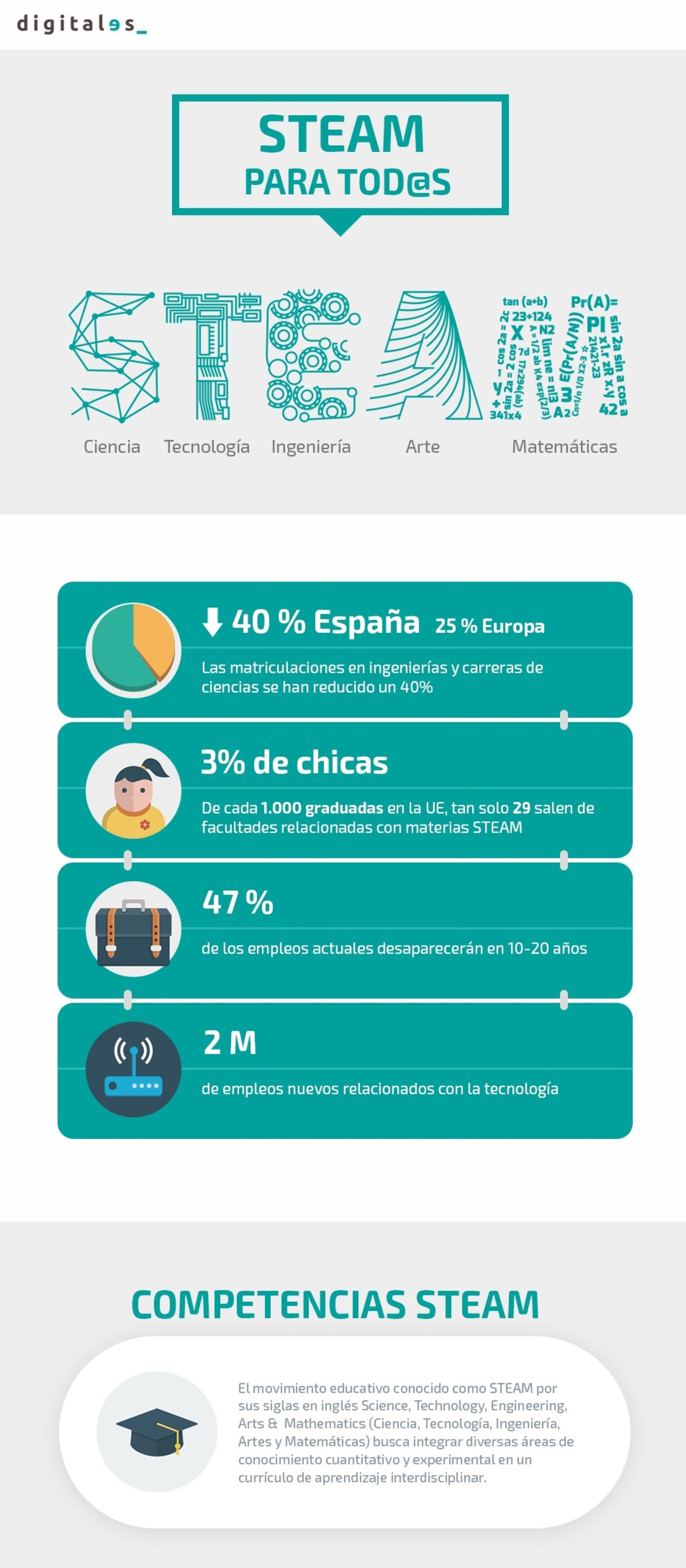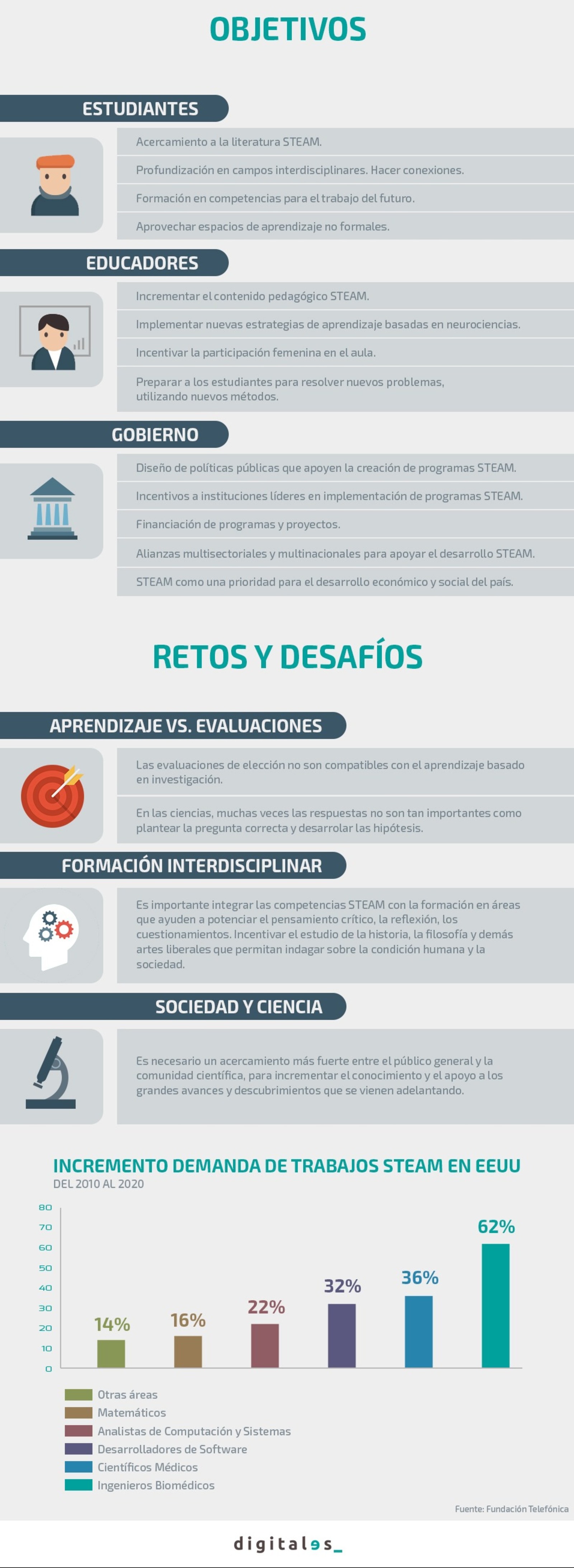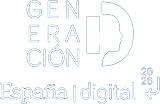18/05/2018
New technologies will lead to the creation of 2 million jobs worldwide for which there are still no qualified professionals. By 2020, the demand for STEAM profiles is expected to be 14% in Europe and 10% in Spain. And yet, the rate of enrollment in these careers is slowing dramatically. By as much as 40% in recent years.
How is it possible that, in the subjects in which we will need the most expertise in the near future, there are fewer and fewer students? Something is wrong with our system and perhaps it all starts with explaining well what STEAM subjects are and what the advantages of STEAM are.
STEAM stands for science, technology, engineering, arts and mathematics and is used to designate the academic disciplines of science, technology, engineering, arts and mathematics. They are the ones that will move the labor market in the coming years, if not already in the immediate present.
Without going any further, the companies that make up DigitalES have more than 54,000 STEAM graduates. This is a very high proportion and one of the reasons why the 39 companies that currently make up the association generate a turnover equivalent to 4% of Spain’s GDP.
It seems that no one doubts, especially nowadays, the advantages of this type of training, especially when 47% of current jobs are expected to change or disappear in the next few years. Engineers, architects, software developers, medical scientists and mathematicians are needed.
In 10 years, the new generations will constitute the most important population segment on the planet, making up 75% of the total workforce. Technology will be an essential tool for them to relate to the environment around them.
And yet, fewer and fewer young people are opting for such careers. The case is especially worrying in Spain and among the female population. If in Europe the number of STEAM enrollments has decreased by 25%, in Spain it has reached the worrying figure of 40%.
What’s more, out of every 1,000 STEAM graduates in the EU, only 29 are girls. Less than 3%.
This is not a trivial fact, nor is it a question of vocations. Fostering STEAM skills is key to promoting equal pay, equal employment and eliminating glass ceilings to achieve parity in top positions.
Within its ’12 months 12 causes’ program , DigitalES seeks to promote and encourage studies in STEAM fields among students, in order to alleviate the deficit of new graduates in these areas.
It is everyone’s job, students, educators and government, and it is no small challenge. STEAM knowledge is a priority for the economic and social development of a country, the engine of growth in a few years where the demand for certain training, such as biomedical engineering, will grow by around 62%.
Bringing more young people, especially girls, into this type of knowledge must be a priority if we are to successfully overcome the digital transformation in the short, medium and long term. If the demand for STEAM jobs is growing by 10%, we cannot afford to see enrollments decline by 40%. It is up to all of us to do what we can to reduce this gap between training and demand.












